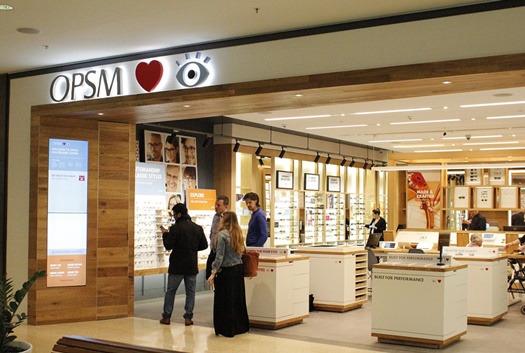Late last year international eyewear companies Luxotica and Essilor commenced discussions with a view to merge the two entities.
The merger would see the Italian Luxotica Group S.p.A, which owns brands including Oakley, Persol and Ray-Ban, merge with Essilor International of France, one of the world’s biggest optical lenses manufacturers, to become a €46 billion (AU$70 billion) global leader.
Due to the number of countries the companies operate in, it has taken most of this year for the proposed merger to be dealt with by competition authorities across the globe, many of which had concerns over potential competition issues. Most of these concerns were reviewed, addressed and the proposed merge given the go-ahead in most parts of the world.
ACCC review: Australia gives its tick of approval
Locally, the Australian Competition and Consumer Commission (ACCC) was concerned about potential limitations on healthy competition in the marketplace and whether the optical market would become too narrow.
In Australia, Essilor mainly sells wholesale finished ophthalmic lenses to correct visual impairments. Luxottica largely supplies wholesale prescription frames and fashion sunglasses including Ray-Ban, Oakley and Prada. Luxottica also has retail outlets, such as OPSM.

Luxottica brand OPSM.
The ACCC has held that as Essilor and Luxottica supply products at different stages of the supply chain, there is minimal direct competitive overlap between the two parties in the proposed merger.
As part of the review process, the ACCC spoke with various interested parties including customers, competitors and industry bodies. Although some concerns were raised, no significant issues arose during that consulting period so as to deny the merger in Australia.
The ACCC found that it was unlikely the proposed merger would raise structural and/or strategic barriers to entry into the particular marketplace for independent retail suppliers of optical dispensing services. Although the merged entity would have significant presence at each stage of the supply chain, the ACCC considered there is enough competition in wholesale markets that retailers would still be able to access the necessary inputs, without needing to also enter at other parts of the supply chain.
While Luxottica has some market leading brands, those brands were not considered ‘must haves’ for many retailers. While these brands are desirable and important for many retailers, retail customers could switch to other frames and lens suppliers in the event the merged Essilor-Luxottica attempted to bundle, restrict access or increase prices.
From a consumer point of view, the ACCC held there are options for lenses and alternative suppliers of frames and sunglasses that consumers could switch to if they did not wish to purchase them from the combined Essilor-Luxottica entity.
The ACCC also considered whether the proposed merger would provide the merged entity with access to downstream rivals’ commercially sensitive information through Essilor’s practice management system, Sunix. The Commission found that currently most retailers’ data is stored on their own private servers. Further, they found that while it is likely some retailers’ data will be stored on a third party ‘cloud’ server, this data would be protected from use by the merged entity, either on an individual store or aggregate basis, through existing contractual arrangements.
Waiting on Europe
It seems the final hurdle for the merger will be a lot closer to the companies’ respective home towns, with a late in the day antitrust investigation to be undertaken by the EU regulator, which is concerned the merge could reduce competition in Europe. The results of that review are not expected until early next year.
The EU regulator appears to have already asked for competition related concessions from the merging entities, however, those requests have been politely declined. Different region, different perspective and different laws. We will have to wait and see, but it looks like they will get a decision before Brexit occurs.
So, if the merger does get across the line internationally, and the predicted cost savings and increased revenues occur, let’s see what effect it will have on wholesale costs for local retailers of those products and services.
Charles Watson is a senior advisor at Workforce Guardian.
Want the latest retail news delivered straight to your inbox? Click here to sign up to the weekly retailbiz newsletter.

